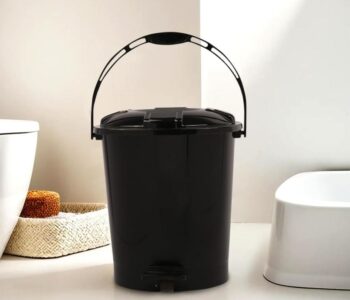 Home Improvement
Home Improvement
Hot Water Systems: How They Work and Important Factors to Consider
- by kristinannie
Plunging into a steamy shower, feeling the warmth of the water caressing your skin, soo whom does this credit go to? Yes, this is made possible by the behind-the-scenes hero – your hot water system. But ever stopped to ponder – how does this reliable companion work? What factors need to be considered when choosing a hot water system? If these queries have ignited a curiosity in you, then this pondering session might just end here. This comprehensive post aims to shed light on the ins and outs of hot water systems, their functioning, and key factors to consider when choosing one.
Whether you’re a homeowner seeking to replace your worn-out system, or simply a curious mind looking for insights into the intricacies of plumbing, a firm understanding of hot water systems can be quite enlightening. Thus, journey with us as we dive deep into the engine room of your home comfort, exploring the radiant world of hot water systems.
We’ll be unraveling the ‘whys’ and ‘hows’ while addressing questions about potential energy saving alternatives, and factors that help you make an informed decision. Strap in as we pull the curtain back, unveiling things that make your hot showers a reality.
The Inner Workings of a Hot Water System
Dwelling into the heart of the system, it helps to understand the pivotal role it plays in our daily lives. As the name suggests, a hot water system functions primarily to heat water. The water initially enters the system from a supply pipe and is then heated by either gas or electricity. It is then transferred to your taps and shower nozzles when needed. Now that’s the basic overview. However, the process varies slightly depending upon the type of hot water system.
Continuing this journey, let’s look at the two types of hot water systems – storage tanks and tankless systems. Storage tanks preheat a considerable amount of water and store it for later use. Tankless systems, on the other hand, generate hot water on demand. While both have their pros and cons, which we’ll discuss later, understanding their functionality forms the cornerstone in choosing a system that aligns with your requirements.
Moreover, these systems can employ a variety of energy sources to heat water. From traditional gas and electricity to solar-powered and heat pump technologies, each possesses distinctive characteristics. Thus, before diving into the hot water system market, it’s a good idea to get familiar with these.
Factors to Ponder When Choosing a Hot Water System
When time calls for a swap in your system, or installing a new one altogether, several key factors come into play. One of the primary considerations is the size of the unit. The size is contingent on several factors primarily- the number of residents in your home, your water consumption habits, and the size of your property.
Moving on to the next significant consideration – energy efficiency. As homeowners across Australia shift towards more efficient home appliances in an attempt to minimize their environmental footprint, the market has been flooded with high-efficiency hot water systems.
Moreover, the cost is another determinant. While highly efficient systems may have larger upfront costs, their long-term savings could potentially offset the initial expense.
Weighing the Pros and Cons
Each hot water system boasts its unique set of advantages and disadvantages. Storage Tank Systems, for instance, promise a consistent supply of hot water but do require ample space for installation. On the other hand, Tankless Systems offer a smaller footprint and only use energy when hot water is needed. However, they can sometimes struggle to supply multiple faucets simultaneously.
Furthermore, traditional Gas and Electric Systems are usually cost-effective and easy to install but may cost more in the long run due to high-energy usage. Solar and Heat Pump Technologies offer incredible energy efficiency, but their higher upfront cost and complex installation can be a drawback for some.
Energy Efficiency – The Smart Way Forward
In the era of alarming increases in greenhouse gas emissions and a warming planet, energy-efficient appliances aren’t just a luxury anymore – they have become a necessity. Hot water systems are no exception. While initially, they can be pricier, these systems slash energy consumption, making them a smart long-term choice for both environment-conscious and cost-aware homeowners.
The Verdict – What’s the Best Hot Water System for You?
Choosing the best hot water system ultimately depends on your personal needs, budget, and environmental consciousness. It’s important to make an educated decision, considering all aspects – from the size and cost to the energy efficiency and type of hot water system suited to your lifestyle.
Conclusion:
Diving deep into the world of hot water systems, we have unraveled the functioning, and the key factors that surround the decision-making process of owning one. Embracing energy efficiency seems to be the smart way forward, yet the final decision entirely depends on your specific requirements and priorities.
Regardless of the choice you make, being informed about the ins and outs of hot water systems will lend you the confidence to navigate this journey. Whether you’re an eco-conscious homeowner or someone setting out on a budget, there’s a hot water system out there waiting, ready to deliver those comforting warm showers you so prize!








